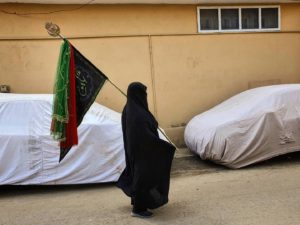Ravadar, a community-led project supported by the IDS CREID programme, worked with residents in poor Christian neighbourhood in Lahore, Pakistan, to provide vital access to clean drinking water. Prior to this, residents had to travel to Muslim majority areas which was both time-consuming and challenging, since they often faced religious discrimination.
Joseph Colony is a poor Christian neighbourhood of around 2,000 people in Lahore, Pakistan. Eight years ago, over 150 homes and 2 churches were burnt down by an angry mob over a false accusation of blasphemy, which greatly exacerbated existing levels of poverty and reduced access to basic necessities, such as clean drinking water. Residents had to go to nearby Muslim majority neighbourhoods to collect clean water, which, led to them “facing a lot of trouble” as Sunita Asif, member of the Ravadar Committee puts it. Community members faced discrimination and it was especially difficult for women to access on foot.
With support from the IDS-led Coalition for Religious Equality and Inclusive Development (CREID), the Al Khoei Foundation and Hive Pakistan devised Ravadar, a unique programme focused on inter-religious engagement and creating innovative governance structures to overcome religious inequalities. In Joseph Colony, Hive formed a Ravadar Committee, comprised of 18 residents with an equal representation of women, men, youth and elders, which led a project on the installation of a water filtration plant in the neighbourhood. They were trained to manage and maintain the plant. They also devised a local crowd-funding plan to ensure the sustainability of the plant.
The new filtration plant has a capacity of 1,000 liters per hour and benefits over 400 households on a daily basis. The project generated enormous trust amidst a fearful community that has become used to being neglected (there are still signs of the burnt-out houses in the area) and also encouraged residents to be more socially involved in their community. The project helped to raise the profile of the community with local MPs, who attended the official opening of the plant, when they would normally only come to the area during election time.
Following the success of the plant, the Ravadar Committee is turning its attention to other matters of community development, such as education.

